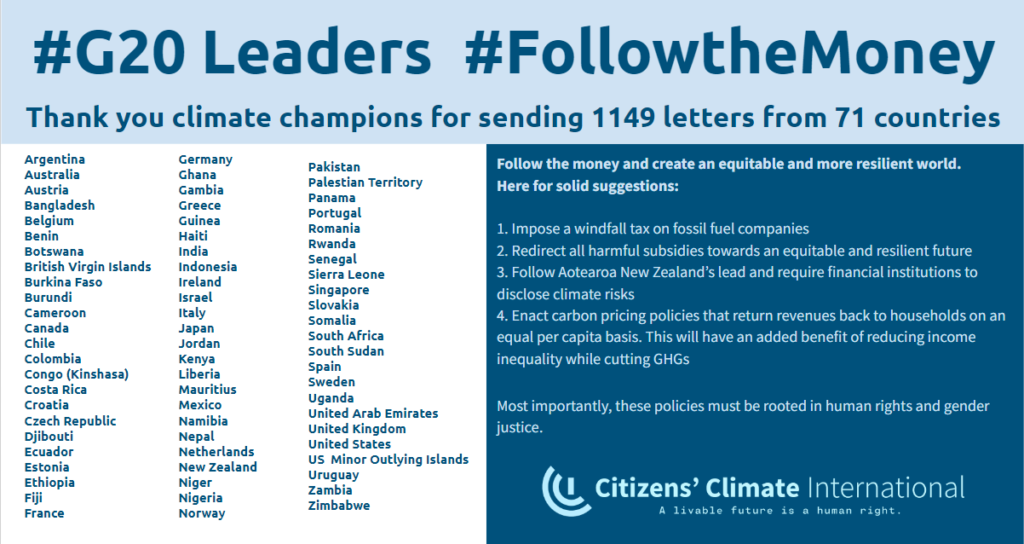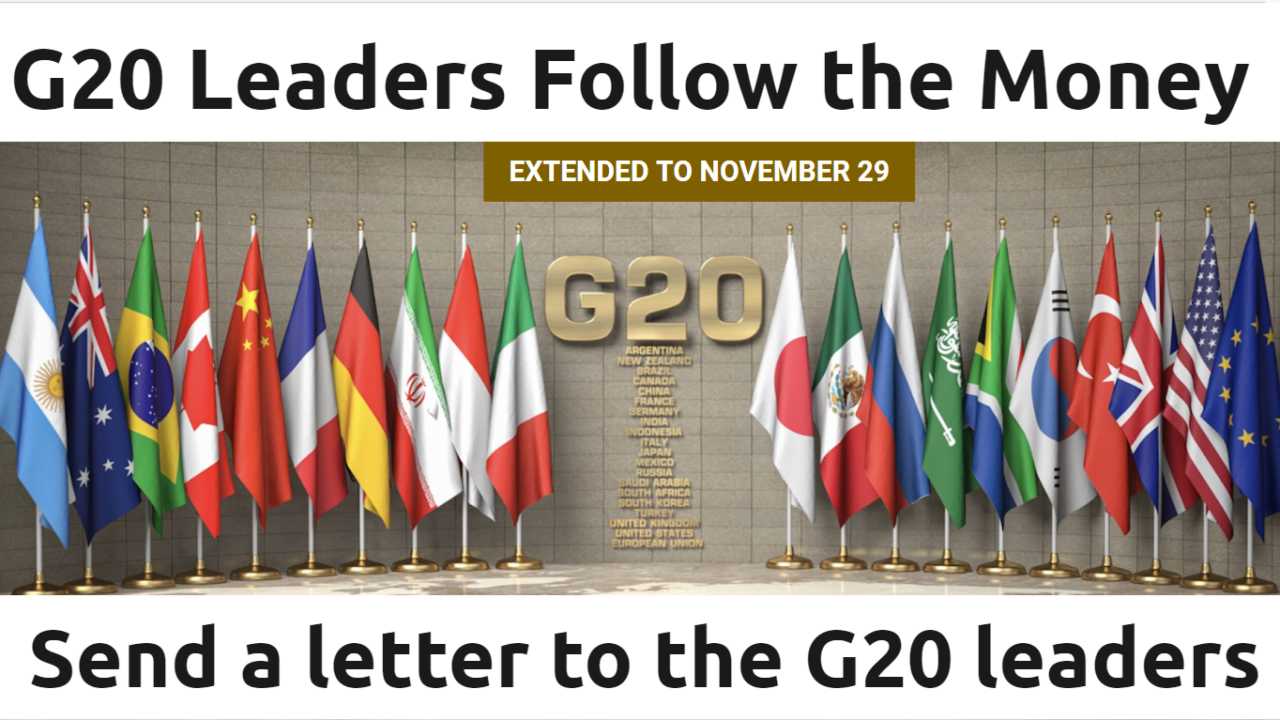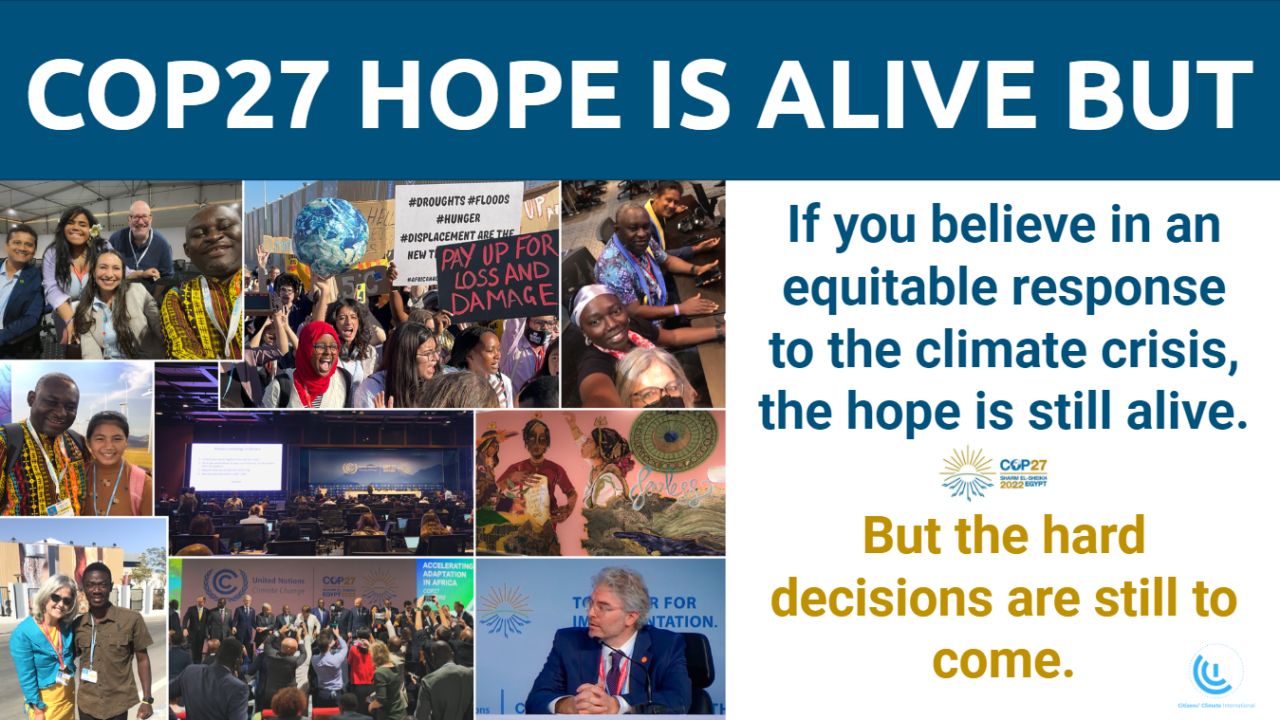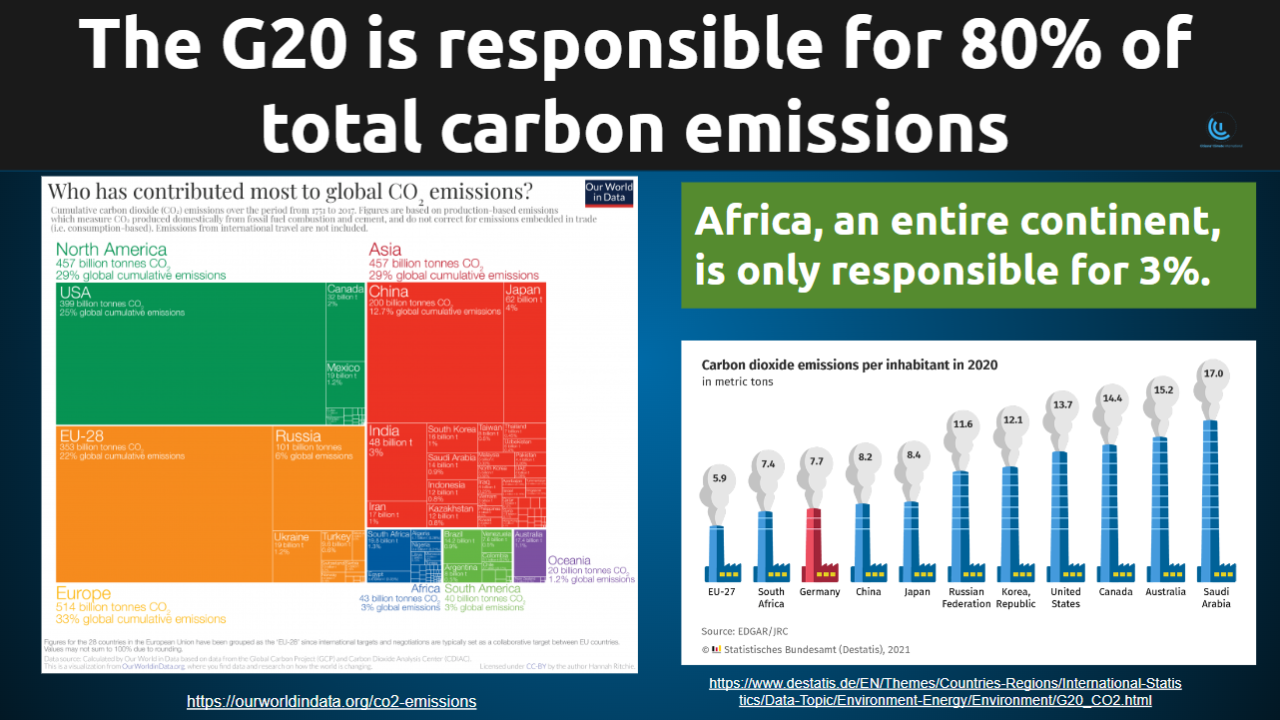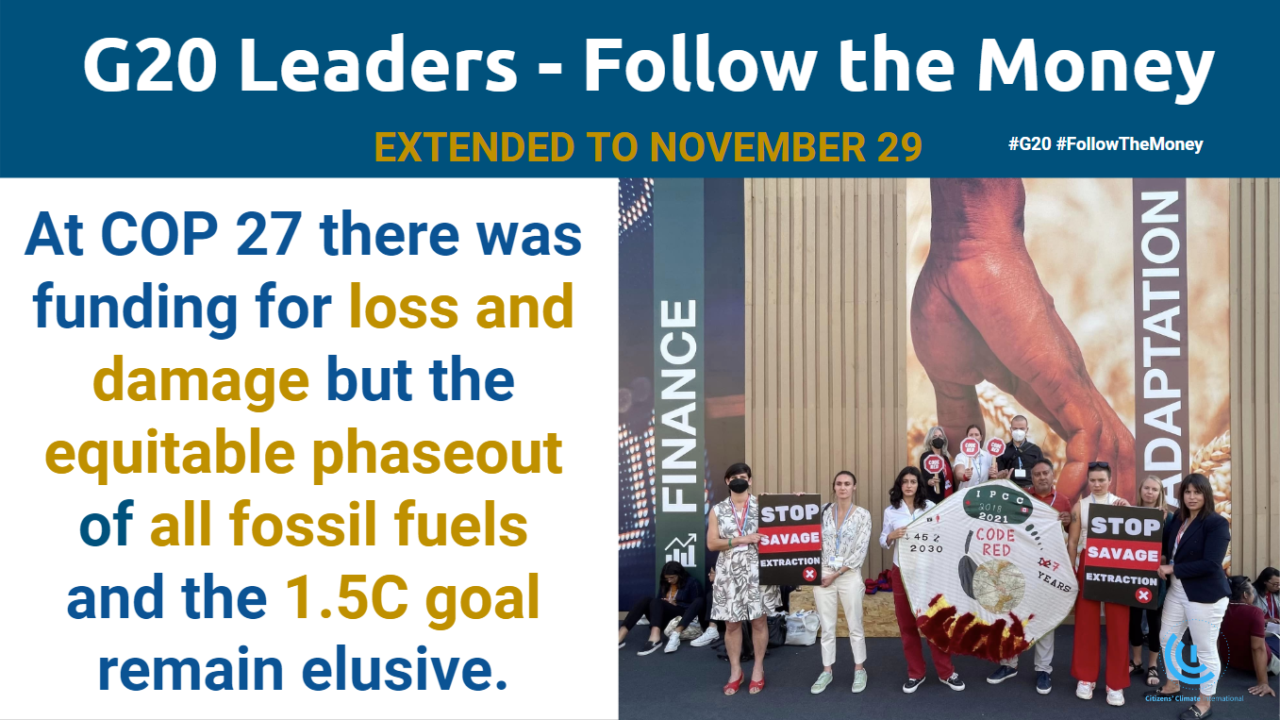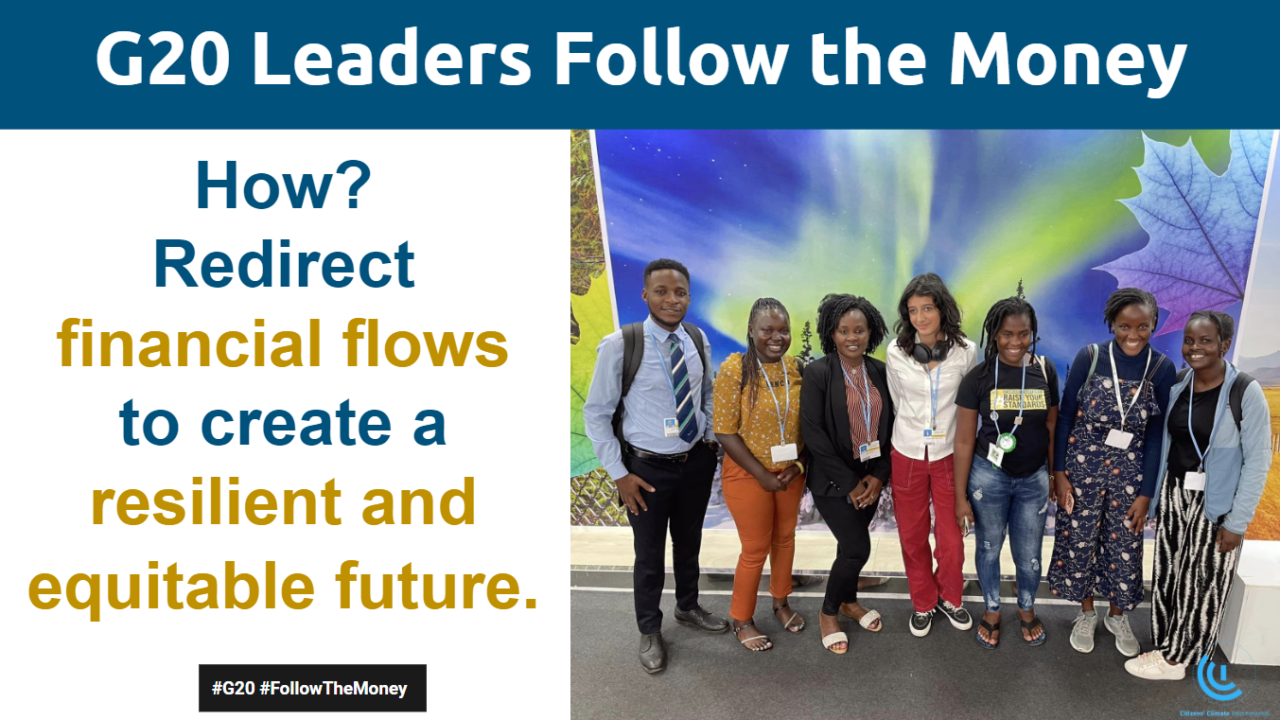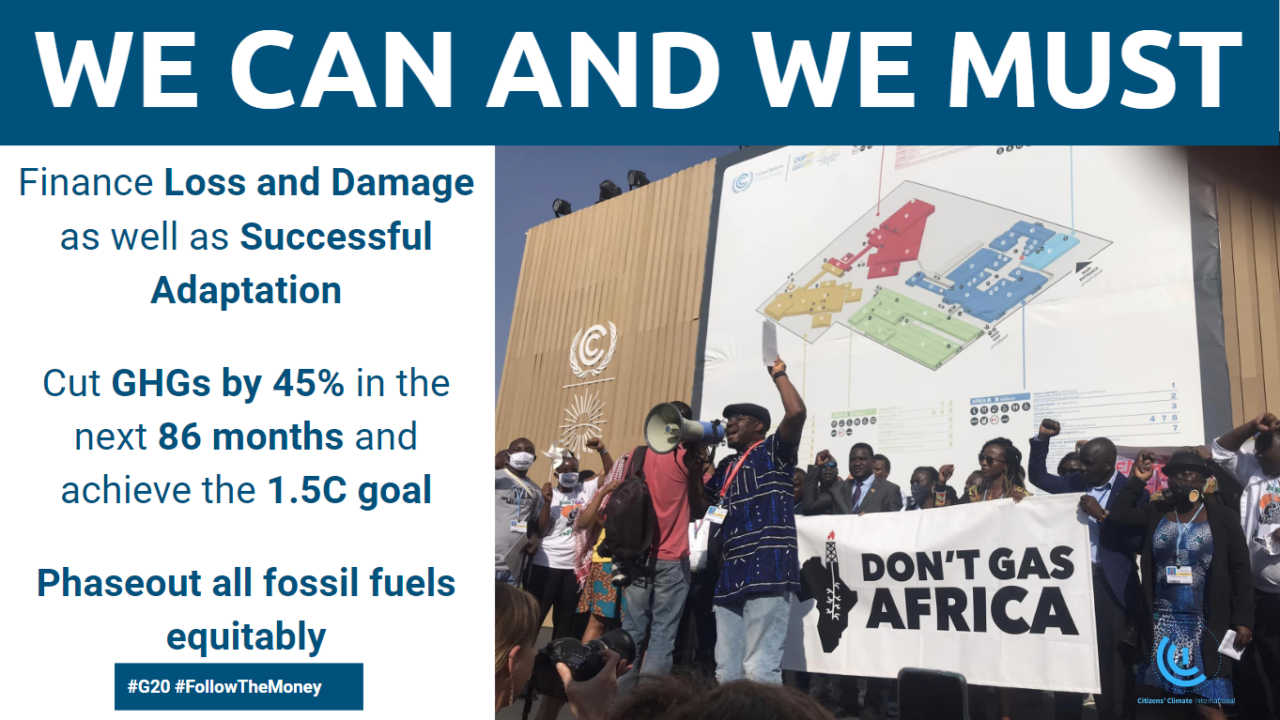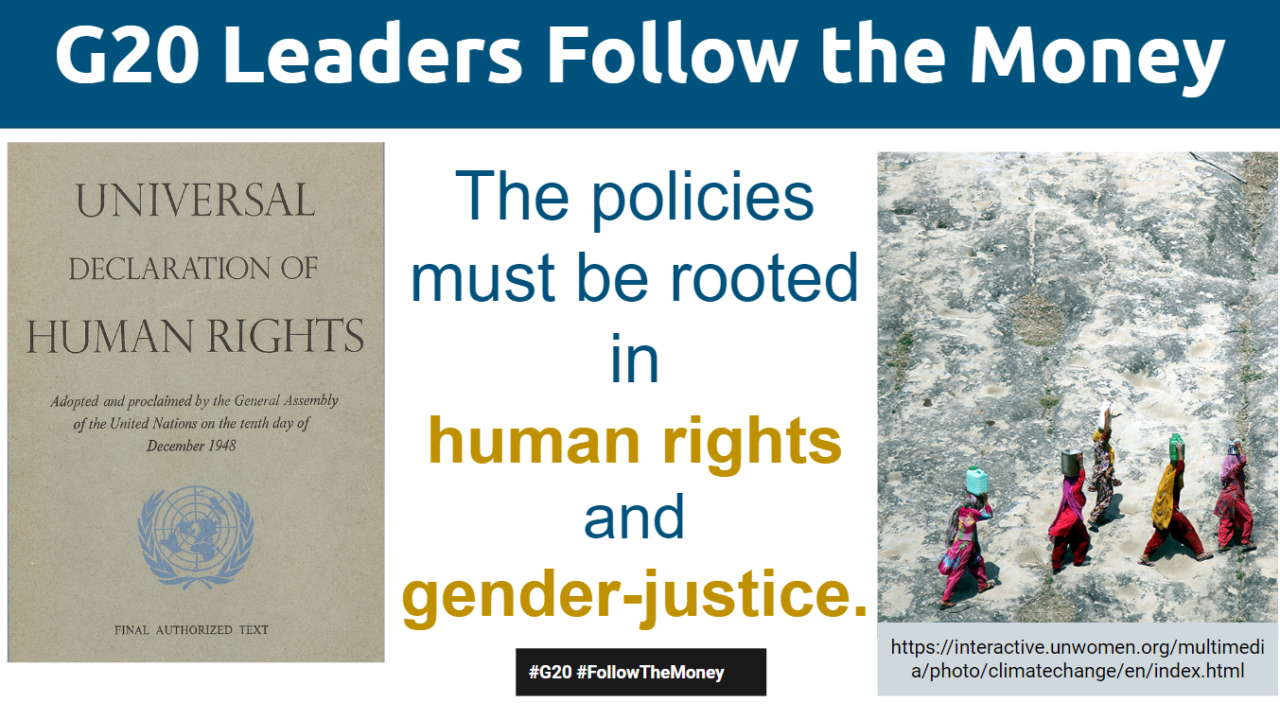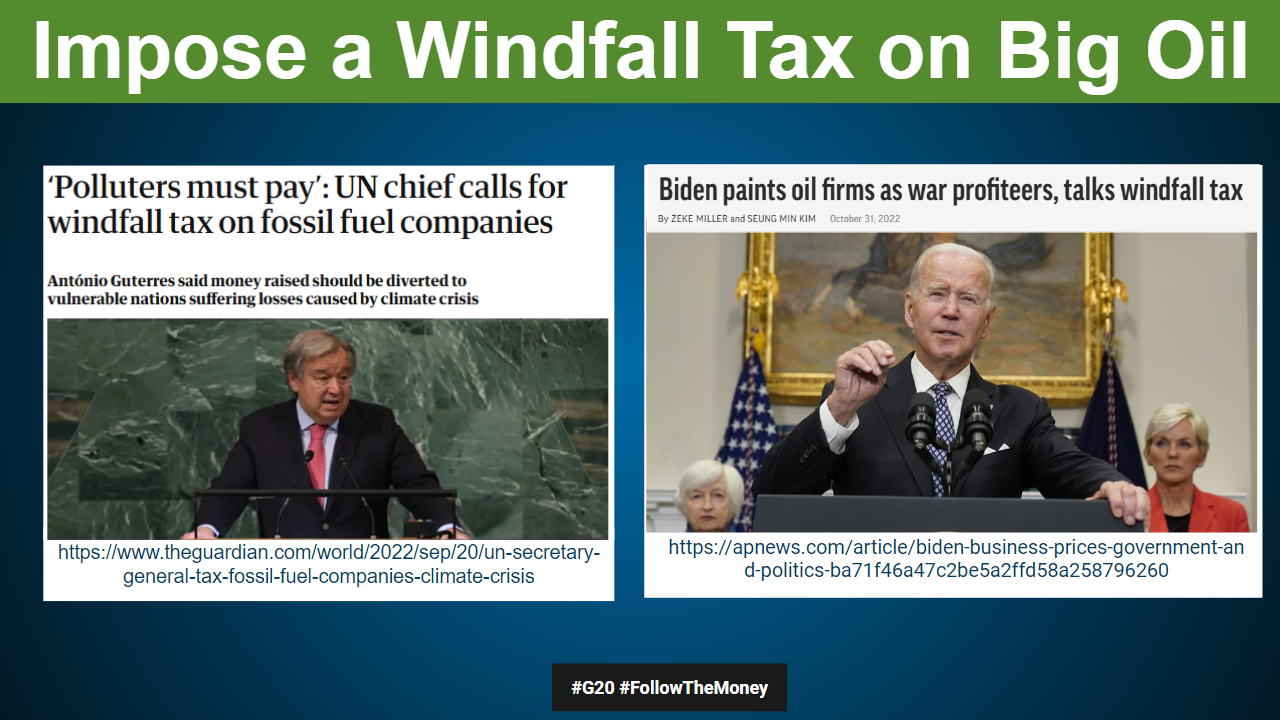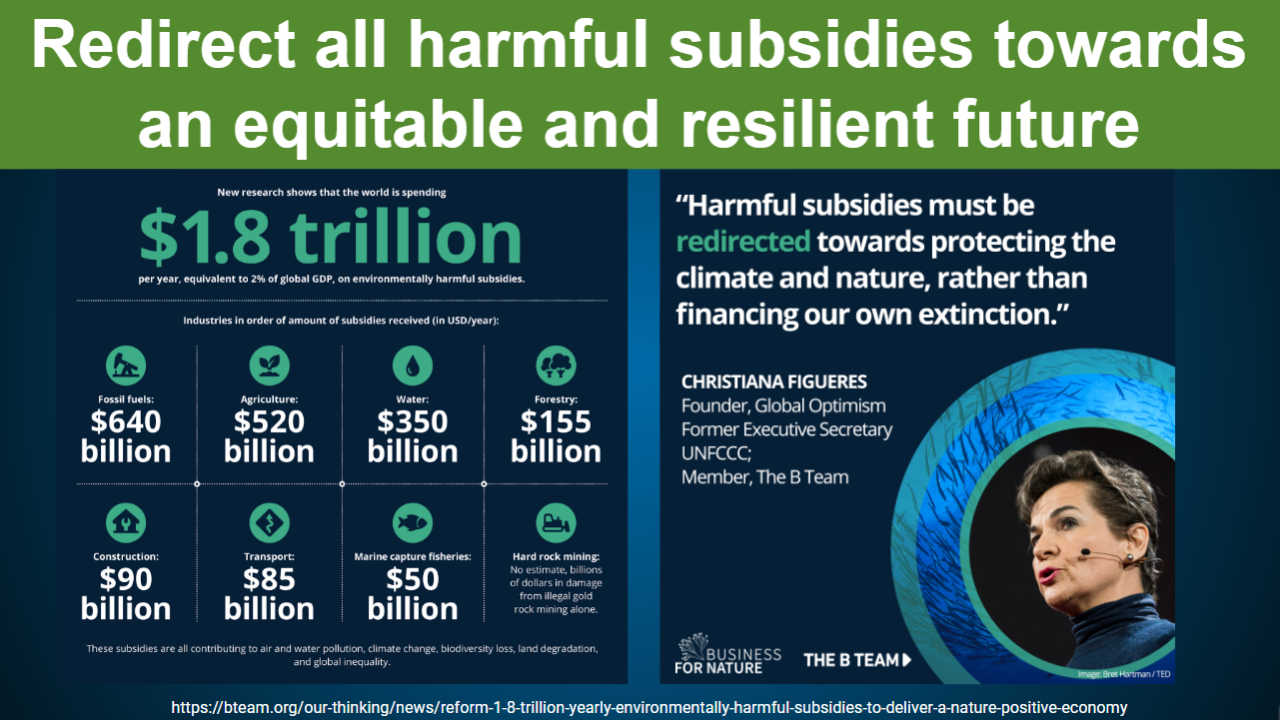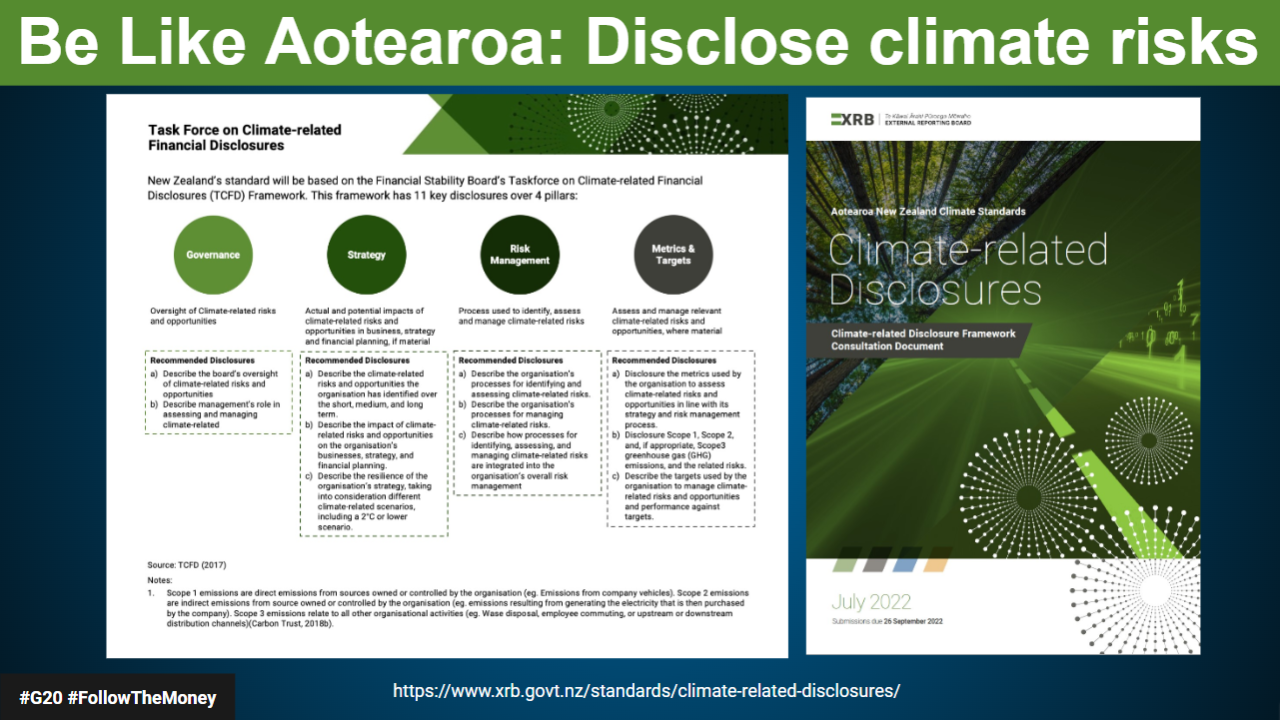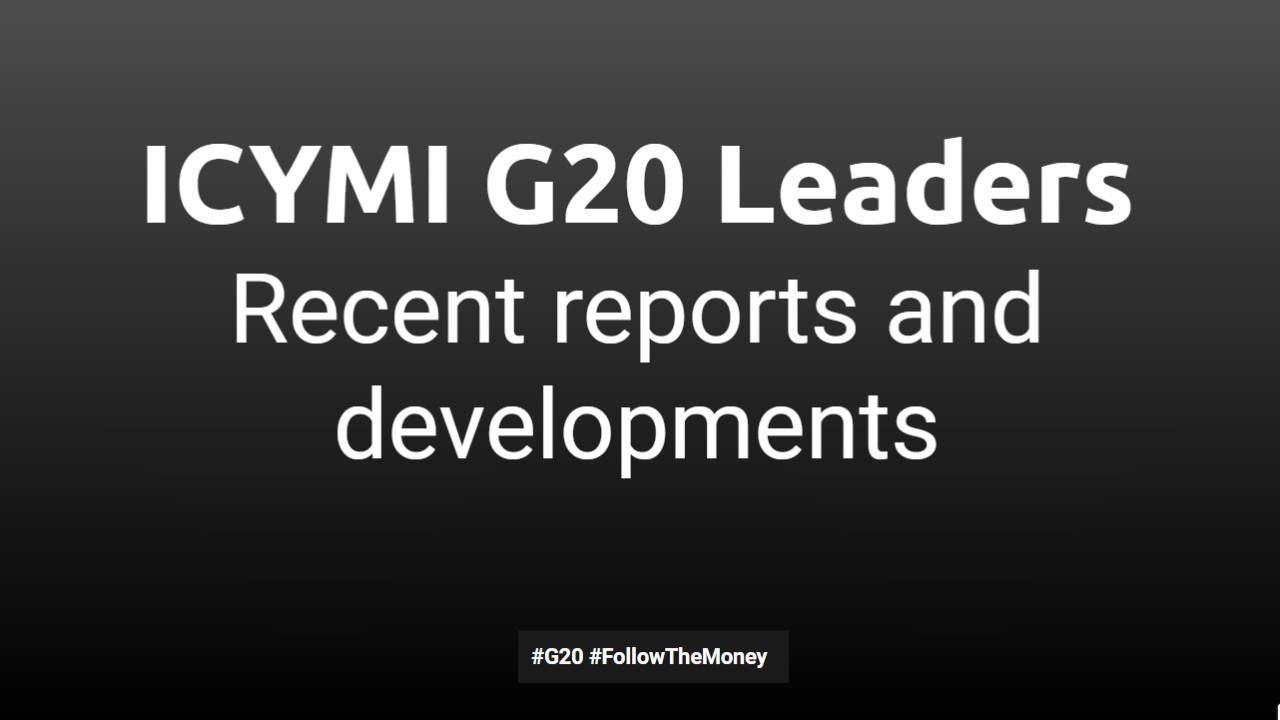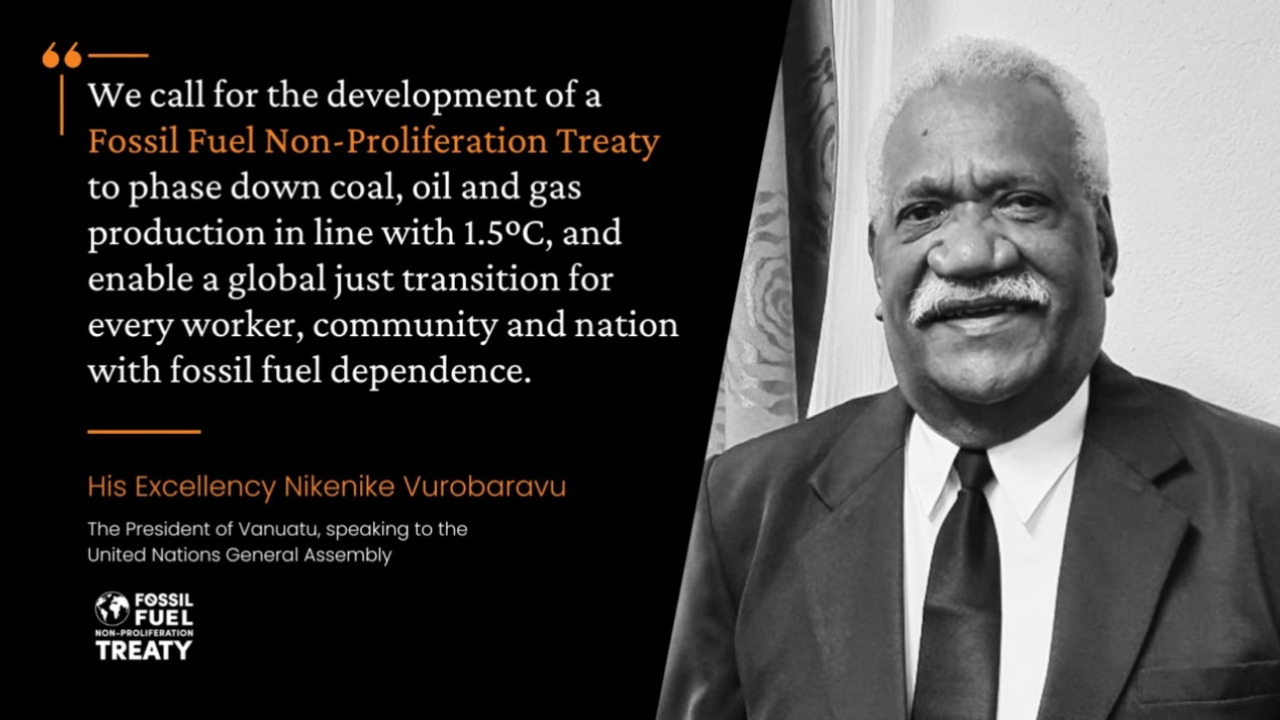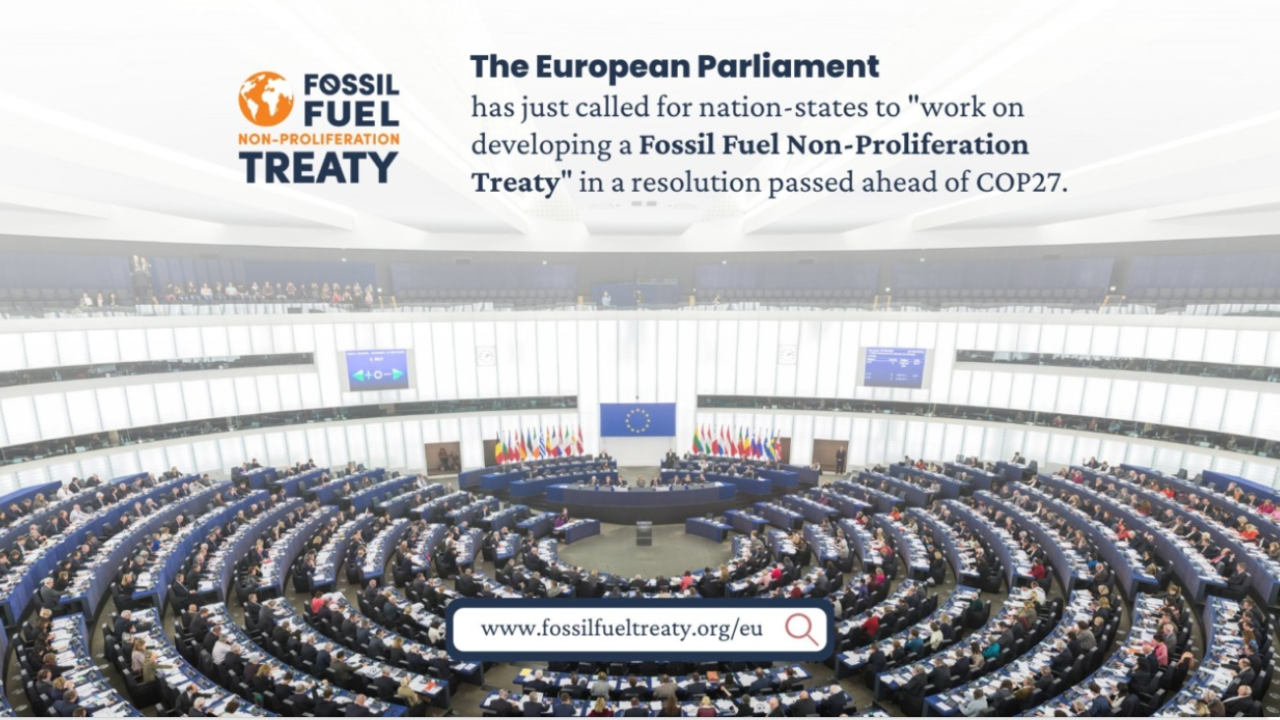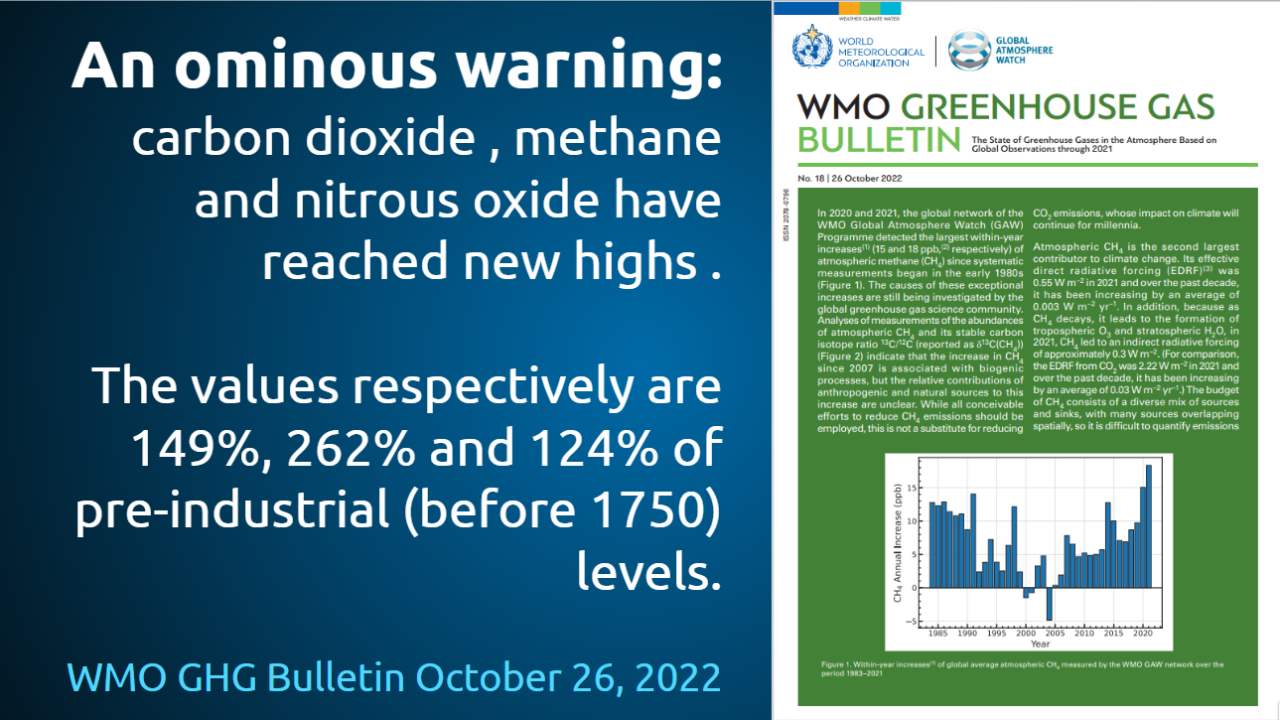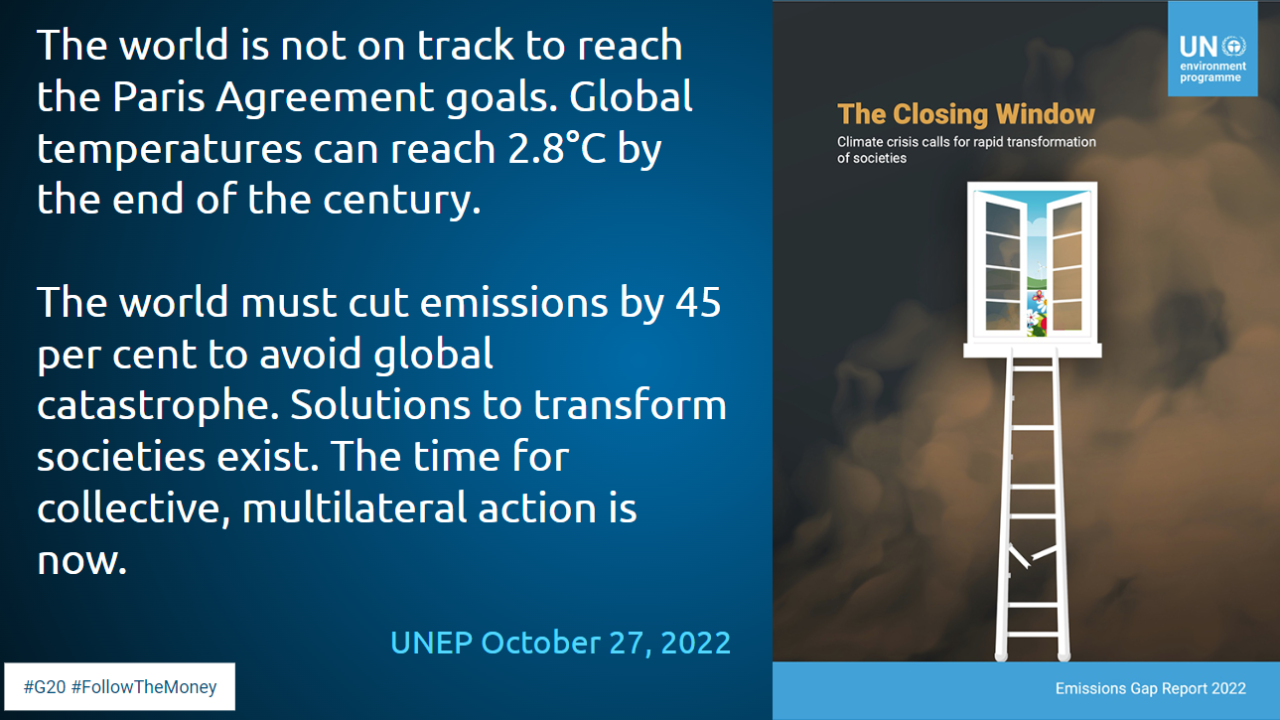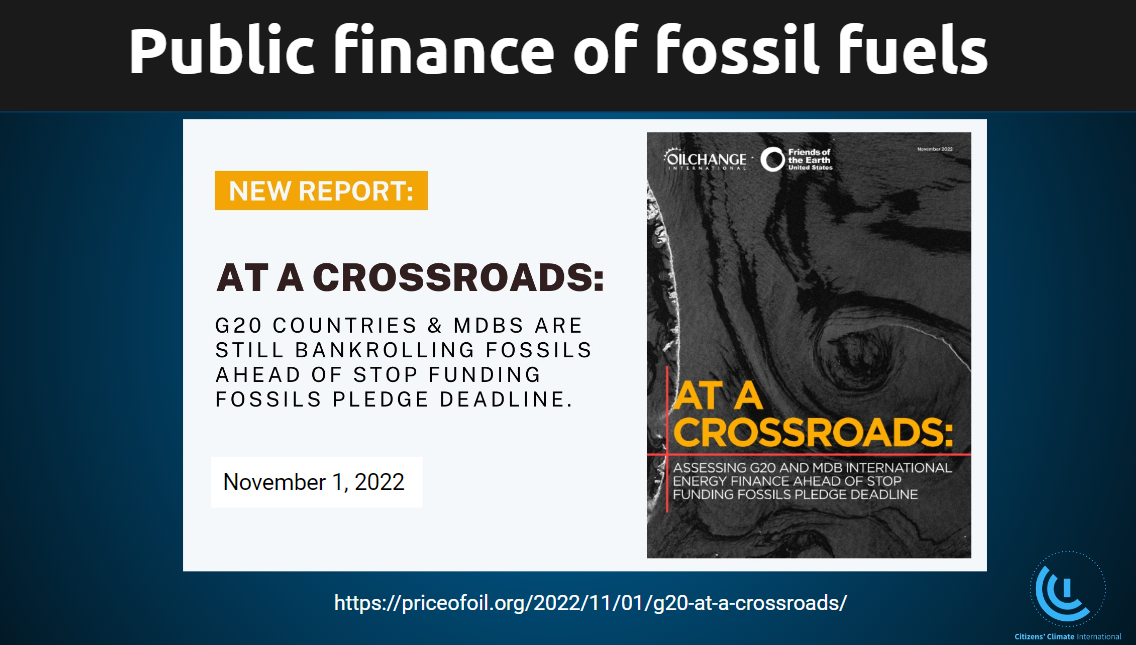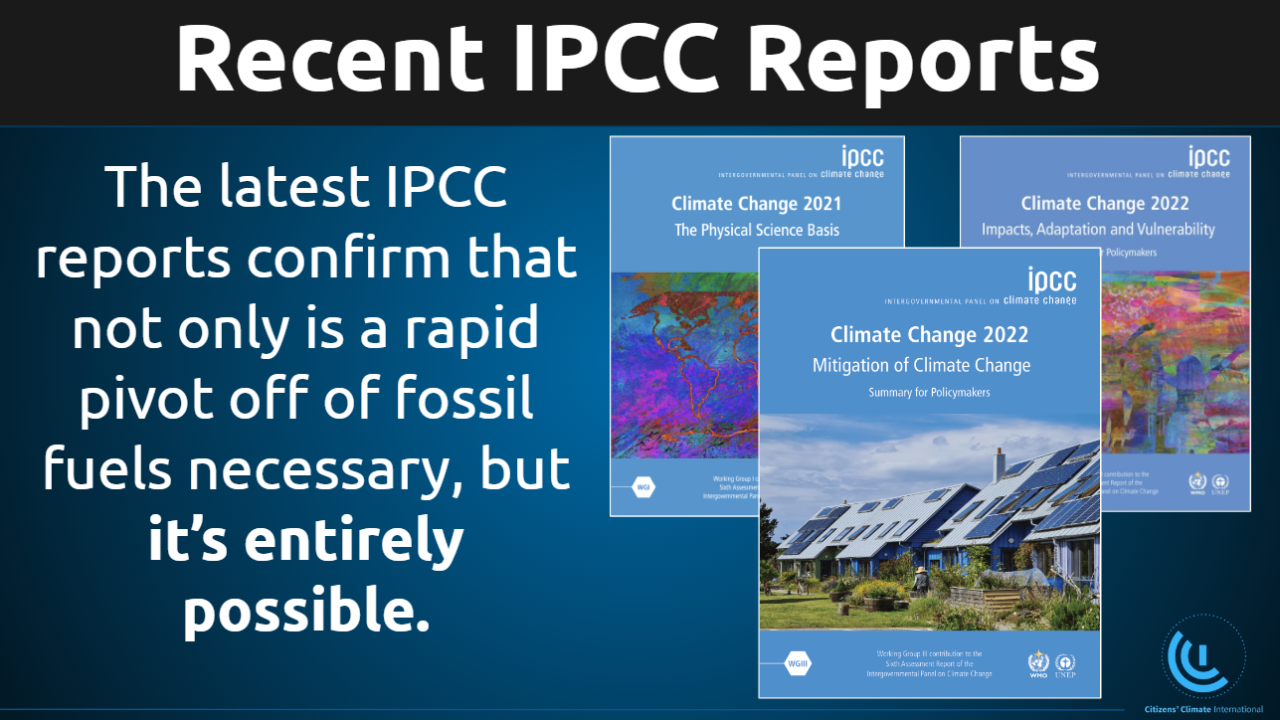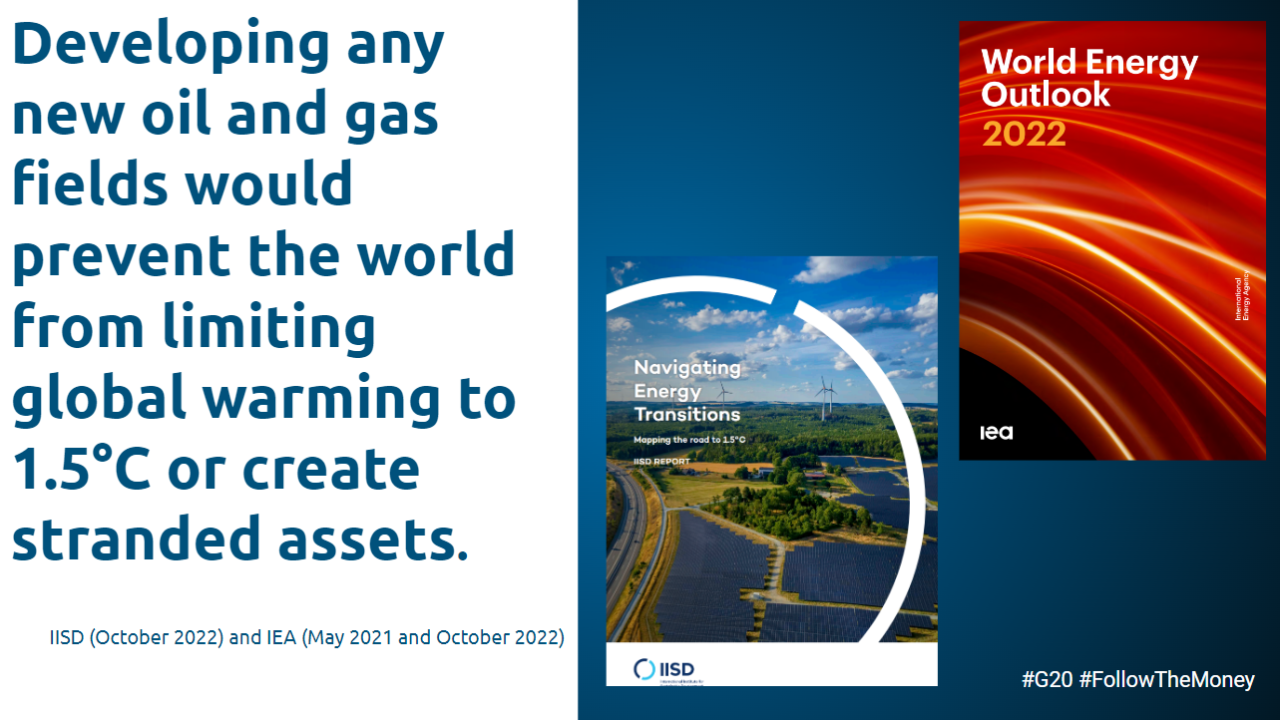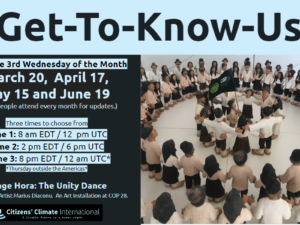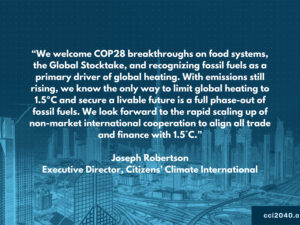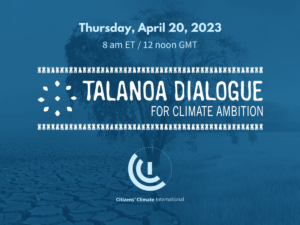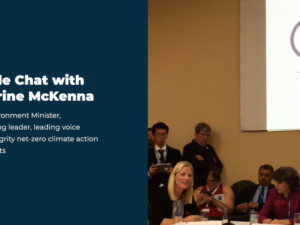How to submit a letter / Comment envoyer une lettre
Le français suivra
Simply:
- Fill in your name, email, and country
- Note that the letter will automatically add the salutations to the G20 leaders
- Edit the letter if you wish to personalize it a bit.
- Press on “Add Your Voice”.
- Announce to the world that you signed with the Twitter and Facebook share functions #G20 #FollowTheMoney
- Another tried and true method is to text friends and family members the link and kindly ask them to sign it too.
Tout simple :
- Remplissez votre nom, votre adresse électronique et votre pays.
- Notez que la lettre ajoutera automatiquement les salutations aux dirigeants du G20.
- Modifiez la lettre si vous souhaitez la personnaliser un peu.
- Cliquez sur “Ajouter votre voix”.
- Annoncez au monde entier que vous avez signé avec les fonctions de partage Twitter et Facebook #G20 #FollowTheMoney
- Une autre méthode éprouvée consiste à envoyer le lien par SMS à vos amis et aux membres de votre famille et à leur demander gentiment de la signer également.
English Letter with Hyperlinks
Dear G20 Leaders,
Thank you for your service to your country and the world.
We are in a climate emergency and already feeling the effects across the globe. By January 1, 2030 the world must cut greenhouse gas emissions (GHG) by 45% compared to 2005 levels. We are not on track.
Not all countries are equally culpable in creating the climate emergency we are now in. The G20 is responsible for 80% of total GHG emissions. Africa, as a continent, is only responsible for 3%. (1) (2)
We need a measured retreat from fossil fuels.
In the past six weeks Vanuatu, Timor Leste, the European Parliament and the World Health Organization have joined the call for a Fossil Fuel Non-Proliferation Treaty. (3) The three pillars of the treaty are:
1. End expansion of new fossil fuels projects
2. Phase out current production in line with 1.5ºC
3. Enable a global just transition for every worker, community & country.
It is in your capacity to create a strong COVID recovery, finance loss and damage, finance successful adaptation, unwind our economies from fossil fuels and cut GHG’s in line with the science while shielding low and middle income households.
G20 leaders you just need to follow the money.
Here are four solid policy suggestions:
1. Impose a windfall tax on fossil fuel companies (4) (5)
2. Redirect all harmful subsidies towards an equitable and resilient future (6)
3. Follow Aotearoa New Zealand’s lead and require financial institutions to disclose climate risks (7)
4. Enact carbon pricing policies that return revenues back to households on an equal per capita basis. This will have an added benefit of reducing income inequality while cutting GHGs (8) (9)(10).
Most importantly, these policies must be rooted in human rights and gender justice.
Thank you for considering the contents of this email.
————
References
(1) https://ourworldindata.org/co2-emissions
(3) https://fossilfueltreaty.org/
(7) https://www.xrb.govt.nz/standards/climate-related-disclosures/
(8) https://www.sei.org/publications/the-carbon-inequality-era/
(10) https://www.nature.com/articles/s41558-021-01228-x
Scientific Data (2022)
IPCC: https://www.ipcc.ch/reports/
WMO: https://public.wmo.int/en/media/press-release/more-bad-news-planet-greenhouse-gas-levels-hit-new-highs
UNEP: https://www.unep.org/resources/emissions-gap-report-2022
Price of Oil: https://priceofoil.org/2022/11/01/g20-at-a-crossroads/
IISD: https://www.iisd.org/system/files/2022-10/navigating-energy-transitions-mapping-road-to-1.5.pdf
IEA: https://www.iea.org/events/world-energy-outlook-2022
Lancet Countdown: https://www.lancetcountdown.org/2022-report/
Svenska
För närvarande ser vi inte ut att nå 1,5-gradersmålet, men vi ser en väg framåt. Skicka ett brev till
G20-ledarna och be dem följa pengarna för att skapa en motståndskraftig och rättvis värld.
Förnamn Efternamn
Epostadress Land
”
Till [mottagarens titel] [mottagarens namn]
Tack för ditt arbete för ditt land och för världen.
Vi befinner oss i ett planetärt nödläge, och klimatkrisens effekter märks redan världen över. Senast
den första januari 2030 måste mänskligheten minska växthusgasutsläppen med 45% jämfört med
2005 års nivåer. Som det ser ut nu kommer vi inte att lyckas.
Alla länder bär inte lika stor skuld till detta klimatnödläge. G20 bär ansvaret för 80% av de totala
växthusgasutsläppen. Kontinenten Afrika har bara orsakat 3%.
Vi behöver lämna de fossila bränslena bakom oss.
De senaste sex veckorna har Vanatu, Timor Leste, EU-parlamentet och Världshälsoorganisation
(WHO) ställt sig bakom ett Icke-spridningsavtal för fossila bränslen. Avtalets tre huvudpunkter är
1. Påbörja inga nya projekt för utvinning av fossilbränslen
2. Fasa ut den nuvarande produktionen i linje med 1,5-gradersmålet
3. Gör en global, rättvis omställning möjlig, för varje individ, samhälle och land
G20 kan skapa en stark återhämtning från COVID, finansiera återställnings- och anpassningsåtgärder,
få bort de fossila bränslena ur våra ekonomier och sänka utsläppen i linje med vetenskapen samtidigt
som ni skyddar låg- och medelinkomsthushåll.
G20-ledare, det ni behöver göra är att följa pengarna. Här är fyra förslag:
1. Inför en skatt på fossilbolagens övervinster.
2. Styr om alla skadliga subventioner till en rättvis och motståndskraftig framtid.
3. Följ Aotearoa New Zealands exempel och kräv att finansiella institut redovisar klimatrisker.
4. Inför koldioxidprissättning med återbetalning av intäkterna i lika delar till alla medborgare.
Förutom att minska växthusgasutsläppen kommer detta att öka jämlikheten.
De politiska åtgärderna måste grundas på mänskliga rättigheter och jämlikhet mellan könen.
Vänligen läs mer om kampanjen här: [länk]
Tack för din tid och för att ni överväger våra förslag.
Med bästa hälsningar,
[ditt namn]
[din epostadress]
[ditt lands namn]
Français
Chers dirigeants du G20,
Merci pour le service que vous rendez à votre pays et au monde.
Nous sommes en situation d’urgence climatique et nous en ressentons déjà les effets à travers le monde. D’ici le 1er janvier 2030, le monde doit réduire les émissions de gaz à effet de serre (GES) de 45 % par rapport aux niveaux de 2005. Nous ne sommes pas sur la bonne voie.
Tous les pays ne sont pas également coupables d’avoir créé l’urgence climatique dans laquelle nous nous trouvons actuellement. Le G20 est responsable de 80 % des émissions totales de GES. L’Afrique, en tant que continent, n’est responsable que de 3 %. (1) (2)
Nous avons besoin d’un retrait mesuré des combustibles fossiles.
Au cours des six dernières semaines, le Vanuatu, le Timor Leste, le Parlement européen et l’Organisation mondiale de la santé ont rejoint l’appel en faveur d’un traité de non-prolifération des combustibles fossiles. (3) Les trois piliers de ce traité sont :
1. Mettre fin à l’expansion des nouveaux projets de combustibles fossiles
2. Eliminer progressivement la production actuelle en fonction de 1,5ºC
3. Permettre une transition mondiale juste pour chaque travailleur, communauté et pays.
Il est en votre pouvoir de créer une forte reprise du COVID, de financer les pertes et dommages, de financer une adaptation réussie, de libérer nos économies des combustibles fossiles et de réduire les GES conformément à la science tout en protégeant les ménages à revenus faibles et moyens.
Les dirigeants du G20 n’ont qu’à suivre l’argent.
Voici quatre suggestions politiques solides :
1. Imposer une taxe exceptionnelle aux entreprises de combustibles fossiles (4) (5)
2. Réorienter toutes les subventions néfastes vers un avenir équitable et résilient (6)
3. Suivre l’exemple d’Aotearoa New Zealand et exiger des institutions financières qu’elles divulguent les risques climatiques (7)
4. Adopter des politiques de tarification du carbone qui renvoient les revenus aux ménages sur une base égale par habitant. Cela aura pour avantage supplémentaire de réduire les inégalités de revenus tout en réduisant les GES (8) (9)(10).
Plus important encore, ces politiques doivent être ancrées dans les droits de l’homme et la justice de genre.
Merci de prendre en considération le contenu de ce courriel.
————
Références
(1) https://ourworldindata.org/co2-emissions
(3) https://fossilfueltreaty.org/
(7) https://www.xrb.govt.nz/standards/climate-related-disclosures/
(8) https://www.sei.org/publications/the-carbon-inequality-era/
(10) https://www.nature.com/articles/s41558-021-01228-x
Informations scientifiques (2022)
IPCC: https://www.ipcc.ch/reports/
WMO: https://public.wmo.int/en/media/press-release/more-bad-news-planet-greenhouse-gas-levels-hit-new-highs
UNEP: https://www.unep.org/resources/emissions-gap-report-2022
Price of Oil: https://priceofoil.org/2022/11/01/g20-at-a-crossroads/
IISD: https://www.iisd.org/system/files/2022-10/navigating-energy-transitions-mapping-road-to-1.5.pdf
IEA: https://www.iea.org/events/world-energy-outlook-2022
Lancet Countdown: https://www.lancetcountdown.org/2022-report/
